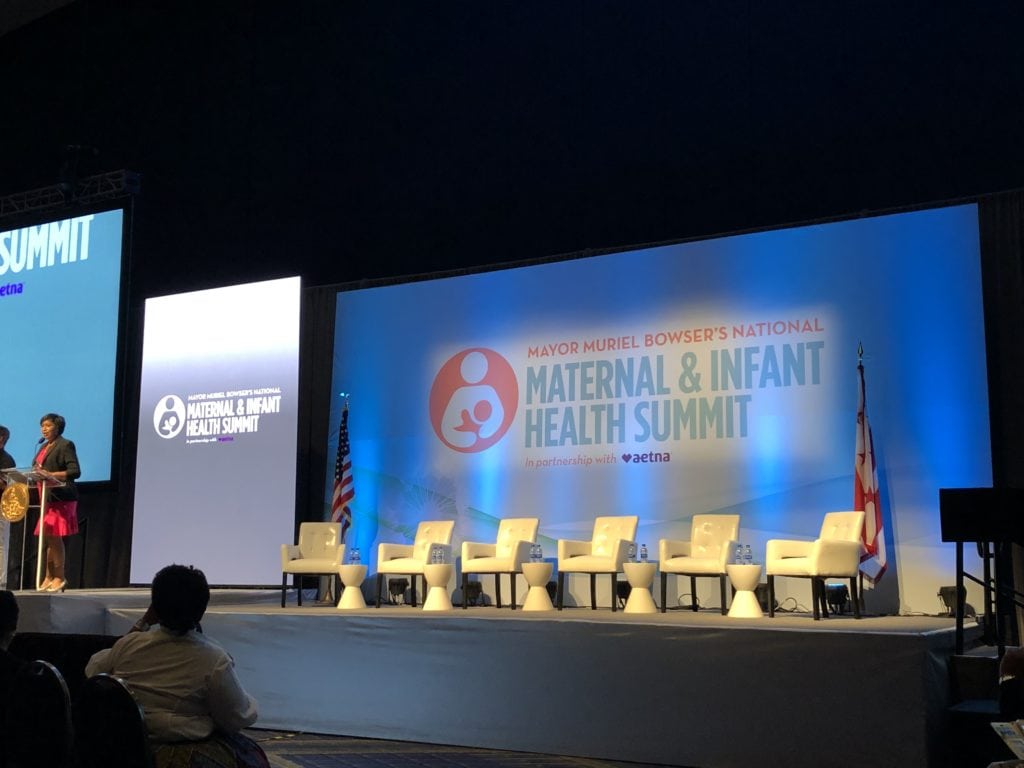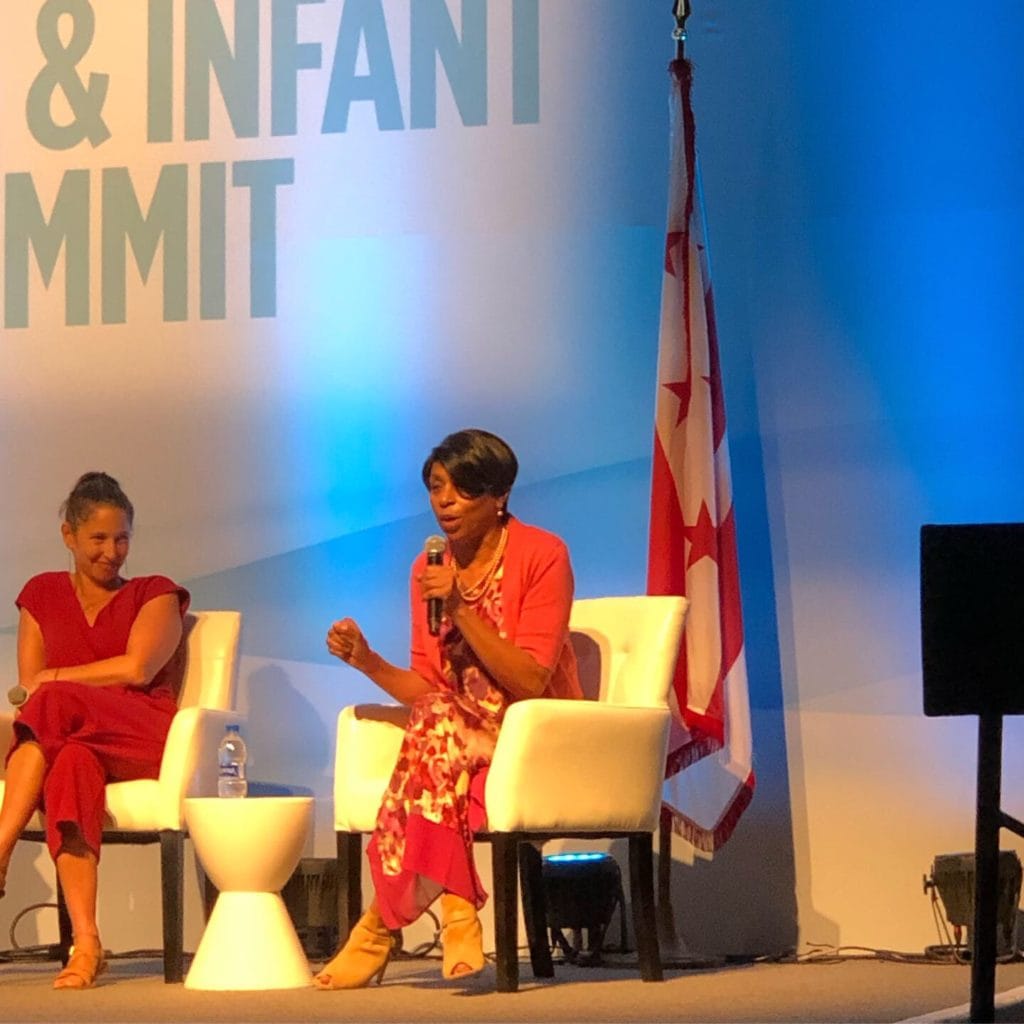Moving the Needle on Maternal and Infant Health in the District Must Involve Investing in the Federal Nutrition Programs
October 8, 2019
By Paige Pokorney

Mayor Muriel Bowser speaking at the 2019 National Maternal & Infant Health Summit
In September, the District convened its second annual Maternal & Infant Health Summit, where local residents, elected officials, health and education officials, and community partners gathered to discuss the state of maternal and infant health and early childhood development in D.C.
Among discussions of innovations and emerging issues in the health and well-being of the District’s mothers and young children, consensus was clear that successful pregnancies and healthy babies can be supported with good nutrition.
In the District in 2018, 20.8 percent of infants and toddlers lived in poverty, and the low or very low food insecurity rate was 19.91 percent — conditions that jeopardize mothers’ and young children’s access to nutritious food. Fortunately, the Special Supplemental Nutrition Assistance Program for Women, Infants, and Children (WIC), the Supplemental Nutrition Assistance Program (SNAP), and the Child and Adult Care Food Program (CACFP) form a safety net that helps women and their families in D.C. and beyond eat well and maintain and improve their health.
In 2018, SNAP and WIC lifted, respectively, 3.1 million people and 275,000 people out of poverty through food assistance and other resources and services. CACFP ensures childcare centers and family care homes have the capacity to serve nutritious meals to infants and toddlers. Together, these three programs help improve economic and food security, which are associated with enhanced dietary intake, less vulnerability to obesity, better learning and development outcomes, and improved birth outcomes.

Beverley Wheeler, Director of D.C. Hunger Solutions (right), speaking at the 2019 National Maternal & Infant Health Summit
The importance of connecting more eligible women and young children to the federal nutrition programs was highlighted during the Summit. While speaking on a panel on improving healthy food access for District families, Beverley Wheeler, the director of D.C. Hunger Solutions, called for more program streamlining: “When a woman is on Medicaid and has a baby in a hospital, let’s sign her up for WIC and SNAP right then and there so she doesn’t have to juggle diapers, strollers, and buses to get access to resources.”
Research confirms that good nutrition in the first five years of a child’s life can help support healthy brain development, lead to positive health outcomes, decrease vulnerability to the development of behavioral and emotional problems, and boost academic achievement. Given this, the District must do more to ensure all eligible women, infants, and young children have access to the federal nutrition safety net. First steps, such as funding the WIC Expansion Act, are promising, but more must be done to improve both WIC and CACFP outreach and participation rates. For example, DC Health has the opportunity to improve WIC retention by replacing existing paper food vouchers with electronic benefits transfer (EBT) cards. In the words of Wheeler, “[D.C.] is too powerful, too big, and too bad to have our kids go hungry.” Let’s take the energy ignited at last month’s Summit to ensure all women and babies have healthy starts and healthy lives.
